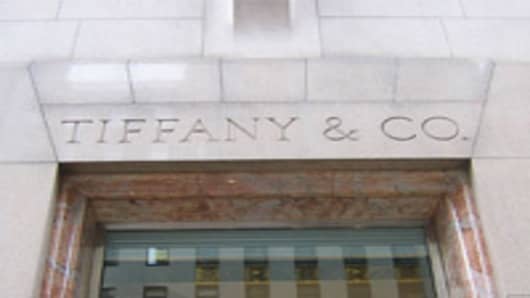High end sales are the last to fall off going into a downturn and the first to pickup coming out of a recession. So what does Tiffany'sbetter than expected earnings tell us about where we are in the middle of those two options?
Well, not a whole that more than we already knew:
(1) The aspirational mid-income customer is in trouble (hence weakness in silver jewelry sales in the $500 and below category,
(2) Domestic sales are slowing (up just 1 percent on the quarter) while international sales are booming (+12 percent.) Here's the interesting part: foreign buyers accounted for 14 pecent of retail sales right here in the U.S. Ironically, the weak dollar is helping to boost Tiffany's U.S. sales (thanks to European and Japanese shoppers) while it is also hurting Tiffany's profitability by helping to raise commodity costs.
Tiffany's does expect sales softness in the U.S. through the second quarter. The Middle East, Russia and Asia are hot markets though for the jeweler with the little blue box. Today's stock performance (its strongest in 7 years) has something to do with the high level of short interest leading into earnings results as well as optimism about Tiffany's 1.27 EPS results.
Is there such a thing as recession proof in retail? No. The growth of the aspirational buyer over the past few years has helped to bring mid-income shoppers up to the Tiffany's, Nordstroms and Saks of the world. Without them, the sales results at these high end stores will be faced with some tough comparisons year over year (when compared to when they were shopping.)
That said, the ultra high end and high income shopper may be pausing purchases but they're certainly not stopping them altogether. These upper income shoppers pause based on psychological inhibitions rather than economic one. In other words, feeling that they should cut back isn't the same as not being able to afford the item in the first place.
Bottom line: The high income shopper is recession proof but clearly high-end stores are not.


